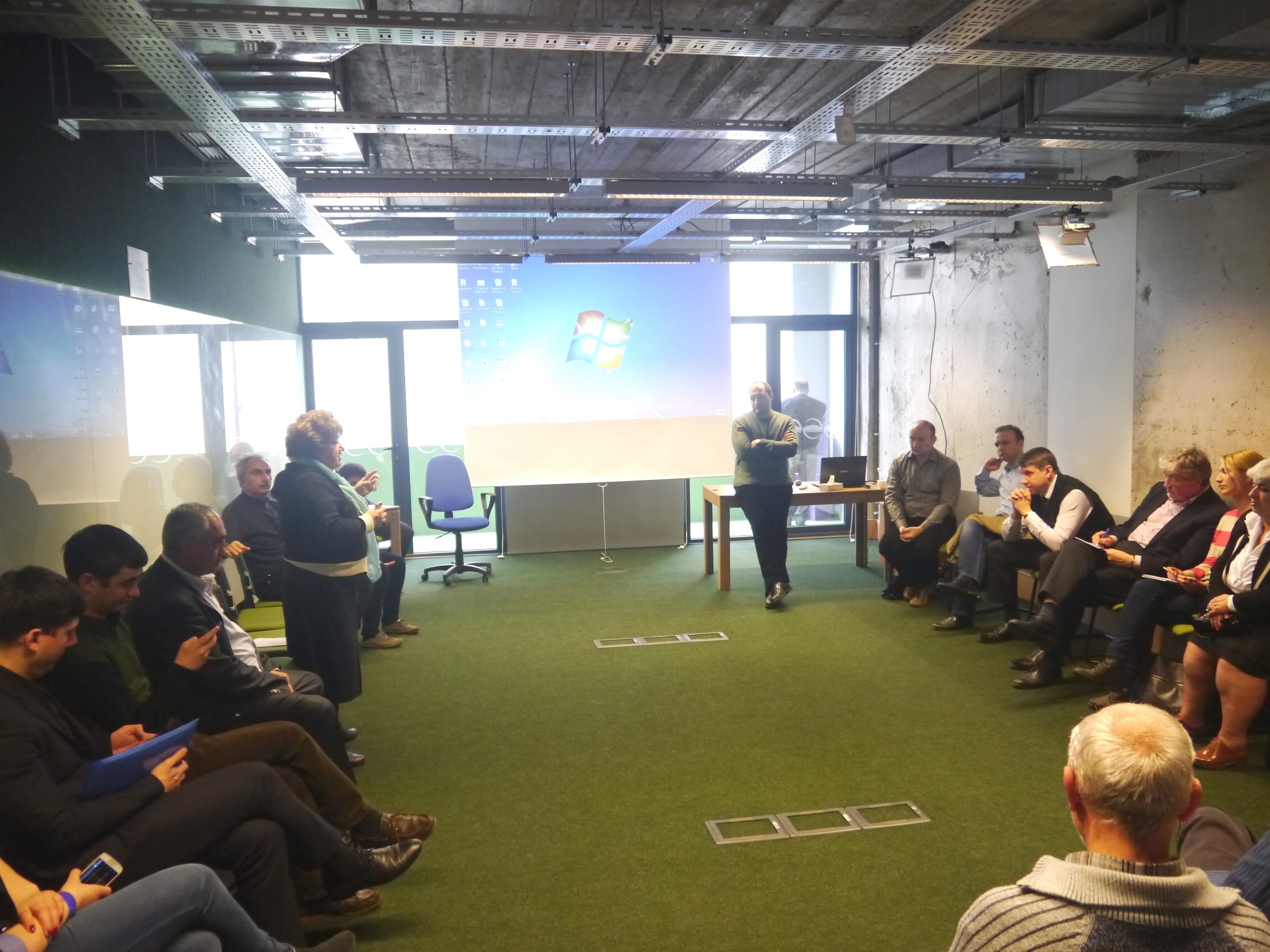|
IN THE SPOTLIGHT |
Eastern Partnership Civil Society Forum
|
|
Call for reforms, fair elections and stronger engagement with civil society at event in margins of EURONEST Parliamentary Assembly with representatives of EaP CSFDuring a session co-organised by the EaP CSF, held on 16 March 2015 in the margins of the Fourth Ordinary Assembly of EURONEST Parliamentary Assembly, Civil Society Representatives highlighted the role of Civil Society Organisations as drivers for reforms, the importance of organizing fair elections, and security concerns in the region. Krzysztof Bobinski, the Co-Chair of the Steering Committee of the EaP CSF, stressed the importance of free and fair elections and of building dialogue with CSOs. The rule of law can only work if lawmakers are legitimately elected. Therefore, election observation is a priority for the EaP CSF. Krzysztof Bobinski called the European Parliament to remember that when observing elections in the Eastern Partnership countries they should first and foremost seek to defend democratic values, and not put geopolitical considerations or party loyalties over their duty to tell the truth about the elections they have observed. He recalled that during the last presidential election in Armenia in 2013 young people protested considering the election fraudulent, when the parliamentary observers accepted the results as fair. As highlighted by Iryna Sushko, EaP CSF Ukrainian National Platform, CSOs in the Eastern Partnership are drivers of reform. The Civil Society is an emerging actor, which still lacks sustainable institutional legacy and strength. Nevertheless, civil society has already proven its key role in the defense of basic European values such as democracy, human rights and the rule of law. In the Eastern Partnership, civil society is often ahead of the governments and provides independent policy expertise, develops reform plans and directly advocates for change. Furthermore, Iryna Sushko challenged the model of cooperation based on tri partite representation imposed by the European Economic and Social Committee (EESC). She explained that such a top-down model would create a model where oligarchs and unreformed GONGO-style trade unions would dominate cooperation over independent civil society groups advocating for real reform. Oligarchs in EaP countries benefit from this model as they “portray themselves as the real civil society and use the explicit dogmatism of the EESC to try and secure a majority of votes in the bilateral civil society platforms which are to be established under the Association Agreements”. They are able to dominate the entire process and it reduces the weight of the pro-reform voice in the country’s representation. Ion Manole, EaP CSF Moldovan National Platform, raised the issue of security in the Eastern partnership countries, energy dependence and foreign media propaganda. These issues continue to divide society and they are a priority of the EaP CSF. He also insisted on the role of Civil Society in keeping reforms on track in order to transform EaP countries into an area of stability. For instance, Moldova has recently registered some negative evolution after the fast and good starting of the implementation of some reforms. The government is simulating reforms and collaboration with civil society, which impedes the reform process. The reform process in Moldova needs more transparency and real collaboration. Krzysztof Bobinski and other representatives deplored the fact that the members of the Azerbaijan parliament are absent from this meeting and that no representative of the Azerbaijan EaP CSF National Platform has been able to attend. Hovsep Khurshudyan, member of the Steering Committee of the EaP CSF, presented the new publication of the European Integration Index for the EaP countries that measures the annual trajectory of the EaP countries towards European integration. He highlighted how Armenia has lost track in the reform process, especially after having joined the Eurasian Economic Union. Since then, many good initiatives have been left unfinished. Petr Kuznetsov, representative of Belarus EaP CSF National Platform highlighted the fact that while there might be some dialogue opening up between EU and Belarus, civil society is completely out of such a process – it’s been impossible to get any information or invitation to it. The Belarusian National Platform is worried that the civil society organizations will be totally discarded and this will be argued by geo-political context, failing to open up a real democratic dialogue between EU and Belarus. Open Society Foundations (OSF) and European Endowment for Democracy (EED) speakers also discussed the reality of reform and CSO involvement in Georgia, Armenia and EaP region as a whole. MEP Heidi Hautala and Ukrainian MP Boris Tarasyuk, co-chairs of EURONEST Parliamentary Assembly, appreciated highly the dialogue with CSO representatives before the beginning of the internal meetings of EURONEST, which benefited from that contribution. They also lamented the lack of participants from Azerbaijan and highlighted that the civil society in the Eastern Partnership region is working with lawmakers to progress on reform and democratization of the region. In addition, the Working Group 1 Council took the opportunity to meet in Yerevan. The major points on the agenda included developing the annual priorities, planning the Working Group meeting, which will take place in early June, identifying messages ahead of the Riga Summit and setting priorities for the regranting process for the group. Members of Working Group 1 Council also met with the CSO members of the National Platform of Armenia. The meeting was a good opportunity to learn about the national realities in other four countries and to compare these realities with the one in Armenia. Regrettably, the member of the Council from Azerbaijan was not able to attend the meeting. |
Project funded by the European Union
![]()








